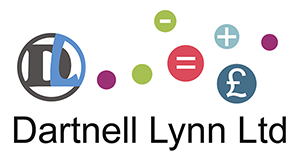
Accounting for use of home really does point out the differences between running a business as a director / shareholder of a limited company and running a business as a sole trader.
Running your business as a sole trader allows you to claim tax relief for costs, charged to you as an individual, that you can evidence are used ‘wholly and exclusively’ for the purposes of selling goods or services. This includes heating and electric bills and other costs that can be apportioned to using a part of your home. Running your business as a limited company separates you, the individual, from the entity of the limited company and business expenses are subject to a set of different tax rules.
As a sole trader, once you have established the proportion of the household costs that you have used to run the business, you can claim this against your profits and receive the tax relief. As a director of a limited company you are not at liberty to do this as the costs are yours, the director, and not the businesses.
Directors can claim employee’s tax relief on their tax return for cost of power, heat and telephones calls at a fixed rate of £4 a week or work a more realistic figure based on actual cost. As a Director you cannot claim rent, mortgage interest, water charges, broadband etc.
So what can you do as a director to recover the cost of running your business from home? Well you, the director, can charge the company rent. You will need to declare this income on your personal tax return but the income received will be the same as the cost to provide and so no tax will be due. You will have to provide the appropriate evidence of the costs you have applied to the return and keep appropriate accounts for the rental payment. You will also need to have a proper rent agreement in place between you, the director, and the company.
The company can then account for the rent in their accounts and claim corporation tax relief on it. The company should disclose the rent in its statutory accounts.
To calculate the appropriate amount: Sole Traders and Limited Companies
Evidence the costs for rent or mortgage interest, council tax, utilities, insurance and broadband and then calculate the proportion use by the business. You can do this by working out a cost per room and then dividing by the amount of time you use that room for your business. You should provide evidence of all the bills and this calculation to show how you have applied the costs.
Rooms used in your house for the running of a business should also be used for personal use such as a bedroom or TV room. Rooms in residential properties that do not also have private use will be subject to a Capital Gains Tax (CGT) or a Uniformed Business Rates (UBR) charge.
You will find some example agreements and a spreadsheet to work out your home use costs in the resources section of the website.
Here is an excellent document looking at home as office from intouch accounting “Contractors Guide to Using your Home as an Office”
Judith
